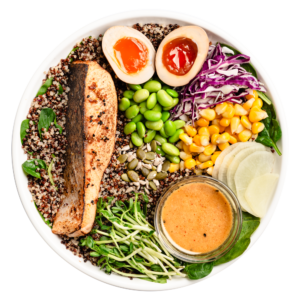As we age, maintaining good health becomes increasingly important, and nutrition plays a vital role in promoting longevity and well-being. The right dietary choices can help manage chronic conditions, boost cognitive function, and enhance overall quality of life. Here are key nutritional strategies to support healthy aging.
1. Prioritize Protein for Muscle Health
Muscle mass naturally declines with age, leading to reduced strength and increased risk of falls and fractures. To combat this, it’s crucial to consume sufficient protein as part of your nutrition for aging well. Incorporating lean sources of protein such as chicken, fish, eggs, legumes, and low-fat dairy into your diet helps preserve muscle mass and supports recovery after physical activity. For older adults, spreading protein intake evenly across meals may be particularly effective in maintaining muscle strength.
2. Embrace a Plant-Based Diet for Heart Health
Heart disease is a leading cause of mortality among older adults. A plant-based diet rich in fruits, vegetables, whole grains, nuts, and seeds can significantly lower the risk of heart disease. These foods provide essential nutrients like fiber, antioxidants, and healthy fats that help reduce inflammation, lower blood pressure, and improve cholesterol levels. Additionally, plant-based diets are often lower in calories, which can help manage weight—a key factor in maintaining heart health.
3. Focus on Healthy Fats for Cognitive Function
The brain is highly susceptible to oxidative stress, which can contribute to cognitive decline as we age. Consuming healthy fats, particularly omega-3 fatty acids found in fish, flaxseeds, and walnuts, supports brain health and promotes healthy aging. Omega-3s are known to reduce inflammation, protect against neurodegenerative diseases, and support cognitive function. Including fatty fish like salmon or mackerel in your diet twice a week is a simple way to boost your intake of these essential fats.
4. Prioritize Bone Health with Calcium and Vitamin D
Bone density decreases with age, increasing the risk of osteoporosis and fractures. To maintain strong bones, it’s essential to consume adequate calcium and vitamin D. Dairy products, fortified plant-based milks, leafy greens, and tofu are excellent sources of calcium. Vitamin D, which aids calcium absorption, can be obtained from fatty fish, fortified foods, and sunlight exposure. For those who have difficulty meeting their needs through diet and sun exposure, supplements may be necessary.
5. Manage Weight with a Balanced Diet
Maintaining a healthy weight is crucial for preventing a range of age-related conditions, including diabetes, heart disease, and joint issues. As metabolism slows down with age, it’s important to adjust portion sizes and choose nutrient-dense foods over empty calories. Incorporating plenty of vegetables, lean proteins, and whole grains can help manage weight while supporting healthy aging and ensuring you receive the essential nutrients needed for overall health.
6. Stay Hydrated for Optimal Health
Dehydration is a common concern among older adults, as the sensation of thirst diminishes with age. Staying hydrated is vital for maintaining energy levels, supporting digestion, and preventing urinary tract infections. Aim to drink water regularly throughout the day and include hydrating foods like fruits and vegetables in your diet. Herbal teas and broths are also excellent choices for boosting fluid intake.
7. Support Digestive Health with Fiber
Digestive health can decline with age, leading to issues such as constipation and diverticulitis. A diet high in fiber promotes regular bowel movements and supports a healthy gut microbiome. Incorporate a variety of fiber-rich foods such as whole grains, fruits, vegetables, and legumes into your diet. Fiber also helps regulate blood sugar levels and lowers cholesterol, further contributing to overall health.
Healthy aging is closely linked to the foods we eat. By prioritizing a balanced diet rich in protein, healthy fats, fiber, vitamins, and minerals, older adults can enhance their quality of life, prevent chronic diseases, and support physical and cognitive function. Making mindful nutritional choices is a powerful way to age gracefully and maintain vitality well into the later years. For personalized meal suggestions tailored to your nutritional needs, visit the SaladStop! nutritional calculator today!




